
Decision Support Pioneers
The goal of this page at DSSResources.com is to recognize those individuals who made major contributions to the study and practice of using computers to support decision making. These influential pioneers developed this applied research area and demonstrated how information technology could be used to support decision making. Identifying these individuals helps place the study of and practice of building decision support systems in an historical context. Please suggest other individuals to add to this page. Contact Daniel.Power@dssresources.com .
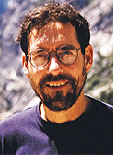 |
STEVEN L. ALTER Professor of Information Systems at the University of San Francisco. He holds a B.S. in Mathematics and Ph.D. in Management Science, both from Massachusetts Institute of Technology. While on the faculty of the University of Southern California in 1979, he revised his Ph.D. thesis and published it as Decision Support Systems: Current Practice and Continuing Challenges, one of the first books about this important type of information system. Prior to joining the University of San Francisco, he was a founding vice president of Consilium, Inc. |
 |
ROBERT H. BONCZEK (April 17, 1951 - June 7, 1985) Bob was Associate Professor of Management at the Krannert School at Purdue University. He earned a Bachelor’s in Mathematics from Cornell University and a Ph. D. in Computer Science from Purdue in 1976. His dissertation was titled "Theoretical description of an access language for a general decision support system" and his advisor was Andrew Whinston. He co-authored the influential book Foundations of Decision Support Systems (1981) with Holsapple and Whinston. He co-wrote many important early papers in the DSS field. He died at age of 34 as a result of complications of gall bladder surgery. |
 |
DAVID TRESMAN CAMINER He did the systems analysis and design for the world's first routine business computer decision support application. Caminer joined Lyons & Co. as a management trainee in 1936 and after war service in North Africa became Manager of the Lyons Systems Research Office. He became Director of LEO Computers Ltd in 1959 and was subsequently General Sales Manager of English Electric LEO Marconi. He completed his career as Project Director for the implementation of the computer and communications network for the European Economic Community. |
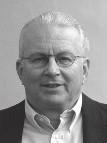 |
ERIC D. CARLSON Senior Fellow at the Santa Clara University Center for Science, Technology, and Society. During the past 30 years, Carlson worked in research, product development, and executive management in Silicon Valley for IBM, Convergent Technologies, Unisys, the ASK Group, and Silicon Graphics, retiring in 2004 as President and CEO of Telcontar, Inc. He co-authored Building Effective Decision Support Systems, 1982. Carlson has a Ph.D. in computer science from the University of North Carolina at Chapel Hill. |
 |
EDGAR F. CODD (August 23, 1923 – April 18, 2003) While working at IBM's Almaden Research Center, "Ted" wrote the influential paper "A Relational Model of Data for Large Shared Data Banks" in 1970. His work led to SQL, the Oracle database and many other database products. In the early 1990s, Codd coined the term OLAP and specified twelve laws of online analytical processing. Codd received the Turing Award in 1981 and in 1994 he was inducted as a Fellow of the Association for Computing Machinery. |
 |
JEAN-CLAUDE COURBON Honorary Professor at the University of Geneva (Switzerland), he later taught at Institut National des Telecommunication (Evry, France) from which he retired in 2004. He is a graduate of Ecole des Mines de Saint Etienne (France) and he received a Ph.D. in Business Administration from the University of Texas in 1974. His research focused on evolutionary design for DSS beginning in 1976 and on groupware as a platform for decision support. |
 |
JAMES F. COURTNEY Professor of Management Information Systems at Louisiana Tech University. He received his Ph.D. in Business Administration with a major in management science from the University of Texas at Austin in 1974. He is the co-developer of the Systems Laboratory for Information Management (1981), a software package to support research and education in decision support systems, co-author of Database Systems for Management (1992), and Decision Support Models and Expert Systems (1992). |
 |
GEORGE B. DANTZIG (November 8, 1914 – May 13, 2005) Dantzig devised the simplex algorithm and is considered the "father of linear programming". He earned bachelor's degrees in mathematics and physics from the University of Maryland in 1936, his master's degree in mathematics from the University of Michigan, and his Ph.D. from UC Berkeley in 1946. In 1952, he became a research mathematician at the RAND Corporation, where he began implementing linear programming on its computers. He taught at Stanford until his retirement in the 1990s. |
 |
GERARDINE DESANCTIS (January 5, 1954 - August 16, 2005) She was the Thomas F. Keller Professor of Business Administration at Duke University. Previously she taught at the University of Minnesota. Her research focused on group decision support systems, learning in distributed teams and online communities. She received a Ph.D. from Texas Tech University. Her article with Brent Gallupe titled "A foundation for the study of group decision support systems" (Management Science, May 1987) is a classic. |
 |
DOUGLAS C. ENGELBART Engelbart's most famous invention is the computer mouse. He earned his Ph.D. from UC Berkeley in 1955. In 1962, he wrote his seminal work, Augmenting Human Intellect: A Conceptual Framework. With colleagues, he developed the first hypermedia—groupware system called NLS (oNLine System). NLS facilitated the creation of digital libraries and storage and retrieval of electronic documents using hypertext. NLS also provided for on-screen video teleconferencing. In 1989, he founded the Bootstrap Institute to foster high performance organizations by developing enabling technologies and promoting collaboration. |
 |
JAY W. FORRESTER Germeshausen Professor Emeritus and Senior Lecturer at the Sloan School of Management, Massachusetts Institute of Technology. He worked with Gordon S. Brown, a pioneer in "feedback control systems" to develop the Whirlwind digital computer for experimental development of military combat information systems. This eventually became the SAGE (Semi-Automatic Ground Environment) air defense system for North America. SAGE is probably the first computerized DSS. In 1956, Professor Forrester started the System Dynamics Group at the Sloan School. His work on corporate modeling led to DYNAMO, a general simulation compiler, developed by Richard Bennett and Jack Pugh. |
 |
MICHAEL J. GINZBERG Dean of Sy Syms School of Business at Yeshiva University. Ginzberg served as Dean at Lerner College of Business, University of Delaware and has held faculty positions at Case Western Reserve, Columbia University and New York University. He is the author and/or editor of more than 50 articles and books on DSS, information systems development and management, information technology strategy, and organizational change. His early research emphasized the importance of redesigning managerial tasks for DSS. He received a Ph.D. in Management in 1975 from the Alfred P. Sloan School of Management at MIT. |
 |
PAUL GRAY Professor emeritus and Founding Chair of the Department of Information Science at Claremont Graduate University. He specializes in data warehousing, business intelligence, decision support systems, and knowledge management. He is the author/editor of 12 books, most recently Decision Support in the Data Warehouse with H.J. Watson. He is also the author of over 120 journal articles including three "first papers" in crime in transportation, in telecommuting, and in group decision support systems. He is the founding editor of the Communications of AIS. Paul received a Ph.D. in Operations Research from Stanford University. |
 |
RICHARD HACKATHORN President and founder of Bolder Technology. In 1982, he founded MicroDecisionware Inc. (MDI). Hackathorn is a technology innovator and international educator. He has written three textbooks entitled Enterprise Database Connectivity, Using the Data Warehouse (with W.H. Inmon), and Web Farming for the Data Warehouse. During the 1970s, he was a professor at the Wharton School of the University of Pennsylvania and at the University of Colorado. He earned his Ph.D. from the University of California, Irvine. |
 |
STARR ROXANNE HILTZ Distinguished Professor of Information Systems, New Jersey Institute of Technology. She conducted pioneering longitudinal studies of "Online Communities". In 1978, she co-authored with Murray Turoff The Network Nation: Human Communication via Computer. Also with Turoff, she designed and conducted some of the first experiments on computer-mediated communication for decision support. She earned a Ph.D. in Sociology from Columbia University in June 1969. |
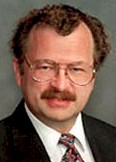 |
CLYDE W. HOLSAPPLE Rosenthal Endowed Chair in Management Information Systems at the University of Kentucky. His research focuses on supporting knowledge work, particularly in decision-making contexts. He has authored over 100 research articles. His many books include Foundations of Decision Support Systems (with Bonczek and Whinston 1981), Decision Support Systems: A Knowledge-Based Approach, and the 2-volume Handbook on Knowledge Management. He received a Ph.D. from Purdue University in 1977. His dissertation was titled "Framework for a Generalized Intelligent Decision Support System". |
 |
GEORGE P. HUBER Charles and Elizabeth Prothro Regents Chair in Business Administration, The University of Texas at Austin. His research focuses on decision making and effects of information technologies on organizations. He has authored over 100 articles. Huber published a pioneering public sector decision support application article (1969) co-authored with Charles Holt. Also, Huber wrote pioneering articles on behavioral issues associated with using DSS and GDSS. He received a Ph.D. from Purdue University in 1965. |
 |
DUSTIN HUNTINGTON President of Exsys Inc., a knowledge automation company and author of the popular Exsys software tools. He established Exsys Inc. in 1983 after extensive experience with the US Atomic Energy Commission (AEC), The US Energy Research and Development Authority (ERDA) and US Department of Energy (DOE). He decided to design a PC-based tool that would be "easy for non-AI specialists to learn, but which would provide adequate power to accurately handle complex real-world problems". His work promoted development of Knowledge-Based DSS. |
 |
WILLIAM H. INMON Bill Inmon, is recognized as the "father of the data warehouse" and co-creator of the "Corporate Information Factory. His work on concepts related to data warehouses began with a 1983 Computerworld article, "What Price Relational?" As an author, Inmon has written about a variety of topics on the building, usage, and maintenance of the data warehouse and the Corporate Information Factory. He has written more than 650 articles, many of them have been published in major computer journals such as Datamation, ComputerWorld, and Byte Magazine. In 1991 Inmon published a practical how-to guide titled Building the Data Warehouse. Check www.inmongif.com |
 |
PETER G. W. KEEN Consultant, author and Professor, Keen has served on the faculties of Harvard, MIT, and Stanford, with visiting positions at a number of universities. His 1978 book with Scott Morton titled Decision Support Systems introduced the concept of IT as a support to managerial judgment to a broad audience. He is the author of more than 20 books aimed at helping senior executives exploit the business opportunity of information technology. He received his bachelor’s degree from Oxford University and masters and doctoral degrees from the Harvard Business School. Check peterkeen.com |
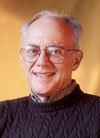 |
RALPH KIMBALL Consultant and author in the field of data warehousing. Kimball's books on dimensional design techniques are best sellers. Also, he has written more than 100 articles and columns. After receiving a Ph.D. in 1972 from Stanford in electrical engineering, Ralph joined the Xerox Palo Alto Research Center. There Ralph co-invented the Xerox Star Workstation, the first commercial product to use mice, icons and windows. He then became vice president of applications at Metaphor Computer Systems, pioneering decision support software and services provider. He founded Red Brick Systems in 1986, serving as CEO until 1992. Check kimballgroup.com. |
 |
MICHEL R. KLEIN Professeur Honoraire at the HEC School of Management in Paris, France. He founded the Information and Decision Science Department of HEC in 1970. From 1970 to 1974, he worked with V. Tixier and J. P. Levy to development SCARABEE, an on-line system to support heuristic problem solving using a financial data base. In 1970, he co-founded the company SIG where he developed DSS applications including FINSIM and OPTRANS DSS. He wrote Expert Systems a DSS approach (1985) and Knowledge-Based DSS (1990) co-authored with Leif B. Methlie. He has an MBA from the Tuck School, Dartmouth College and a doctorate from University of Lille, France. |
 |
FRANK LAND He started his career in computing with J. Lyons, in 1953, working on the pioneering LEO Computer first as a programmer and then as a systems analyst on business decision support applications. In 1967, he left industry to join the London School of Economics on National Computing Centre grant to establish teaching and research in systems analysis becoming Professor of Systems Analysis in 1982. He is a Fellow of the British Computer Society and was awarded a Fellowship of the AIS in 2001 and the AIS LEO Award in 2003. |
 |
OLEG I. LARICHEV (September 20, 1934 — January 19, 2003) Beginning in 1976 Larichev worked in the Institute for Systems Studies, USSR Academy of Sciences (Moscow). He graduated in 1958 from Moscow State Technical University with the speciality of technical cybernetics. In 1994 Oleg was awarded the Gold Medal of the International Society on Multiple Criteria Decision Making. In 1997 he was elected as Academician of the Russian Academy of Sciences. He published more than 200 papers (80 papers published in English) and 8 Books. |
 |
JOHN D. C. LITTLE Institute Professor and the Chair of Management Science at the MIT Sloan School of Management. He is considered a founder of marketing science. He received a Ph.D. in Operations Research from MIT in 1955. With Theodore Hlavac he developed the first online marketing model. Using it, a manager could sit at a terminal, put in a location for a new auto dealership and forecast its sales, taking into account competition from other dealerships. In 1970, he published, "Managers and Models: The Concept of a Decision Calculus". He co-founded a marketing models firm, Management Decision Systems. |
 |
ANDREW M. MCCOSH Eminent Scholar Department of Finance, College of Business Administration, Florida International University. He previously served on the faculties at Harvard, Columbia, the University of Edinburgh, the University of Manchester, and the University of Michigan. He has published research in the areas of innovation and business processes, ethics, decision support technology, and financial strategy. He received a DBA from Harvard Business School. |
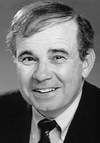 |
JAY F. NUNAMAKER Regent's and Soldwedel Professor in Management Information Systems, Computer Science, and Communication. Founded the MIS department at the University of Arizona in 1974. He received his Ph.D. in systems engineering and operations research from Case Institute of Technology. He was an original member of the ISDOS project (PSL/PSA) under the direction of Professor Daniel Teichroew at Case and the University of Michigan from 1965 to 1968. Built the first operational group decision support center in 1985. |
 |
JOHN F. ROCKART
Senior Lecturer of Information Technology at the Sloan School of Management, MIT beginning in 1966. He was the director of the Center for Information Systems Research until June of 2000. He wrote a number of influential articles including "Chief Executives Define Their Own Data Needs" and "The CEO Goes On-Line" both in the Harvard Business Review. He is widely known for his development of the critical success factors (CSF) method. He received a Ph.D. from Massachusetts Institute of Technology in 1968. |
 |
BERNARD ROY
Emeritus Professor at the Université Paris-Dauphine. He is the founder and, since 1999, honorary director of LAMSADE, a research group centered on the theme of decision aiding. The main contributions of Bernard Roy are focused on two broad themes: Graph Theory and Multiple Criteria Decision Aiding. Bernard Roy is Graduate of the Institute of Statistics of Paris University (1957) and Doctor ès-Sciences Mathématiques of the Faculty of Sciences of Paris (1961). |
 |
MICHAEL
S. SCOTT MORTON Professor of Management at Sloan School of Management at the Massachusetts Institute of Technology. Scott Morton is concerned about organizational and structural changes that US firms must make in order to compete successfully in the global marketplace. He studied engineering at the University of Glasgow in Scotland and finished his studies at Carnegie-Mellon before obtaining his doctorate at the School of Business at Harvard University. His dissertation completed in 1967 was the first systematic study of a computerized management decision system. |
 |
HERBERT A. SIMON (June 15, 1916 – February 9, 2001) An innovative thinker, Simon's research helped found several research domains including Artificial Intelligence, information processing, decision-making, decision support, problem-solving, attention economics, organization theory, complex systems, and computer simulation. He coined the terms bounded rationality and satisficing. Simon received both his B.A. (1936) and his Ph.D. (1943) in political science, from the University of Chicago. His book Administrative Behavior was based on his doctoral dissertation and has had a major influence on both researchers and practitioners. |
 |
RALPH H. SPRAGUE, JR. Professor of Information Systems in the Department of Information Technology Management, College of Business Administration, University of Hawai'i at Manoa. He received a Ph.D.from Indiana University in Quantitative Business Analysis. His framework article on Decision Support Systems was one of the 25 most cited works in the Information Systems field in the 1980s. A citation analysis during that time showed that he was one of the ten most influential authors in the field of Management Information Systems. His 1982 book on DSS, co-authored with Eric Carlson, provides an applied theoretical foundation for the field . |
 |
EFRAIM TURBAN Professor of Information Systems at California State University, Long Beach. Previously, he was Distinguished Professor of Business at Eastern Illinois University. Dr. Turban earned a Ph.D. from the University of California, Berkeley. He is a member of the American Association of Artificial Intelligence, has published more than fifteen books on AI, DSS and information technology, is a member of the editorial boards of several journals, and has been one of the world's most prolific writers in the application of computer technology to business and financial decision making. |
 |
MURRAY TUROFF Distinguished Professor, New Jersey Institute of Technology Information Systems Department. He received a Ph.D. in Physics in 1965 from Brandeis University. He introduced the concept of Computerized Conferencing and is responsible for the implementation, utilization and early evaluation work on this combination of information and communication system technologies. His 1972 article titled "Delphi Conferencing: Computer-Based Conferencing with Anonymity" led to later important work coauthored with Starr Roxanne Hiltz including The Network Nation: Human Communication via Computer. |
 |
GERALD R. WAGNER In 1978, Jerry resigned from his position as tenured Professor and Head of Operations Research, College of Engineering, University of Texas at Austin. He then started his first software company Execucom, which became a leading force in DSS. Execucom sponsored the first DSS conference and started the DSS transactions. Execucom was acquired by GTE in 1984. Dr. Wagner is known for his software including IFPS, VisionQuest, Planners Lab and WebIQ. In 2003, he founded the International Academy for Advanced Decision Support (IAADS). |
 |
HUGH J. WATSON Professor of MIS and a holder of a C. Herman and Mary Virginia Terry Chair of Business Administration in the Terry College of Business at the University of Georgia. He has authored 22 books and over 100 scholarly journal articles. He helped develop the conceptual foundation for decision support systems in the 1970’s, researched the development and implementation of executive information systems in the 1980’s, and most recently, specializes in BI and data warehousing. Hugh is a Fellow of the Association for Information Systems and The Data Warehousing Institute. He is the Senior Director of the Teradata University Network. |
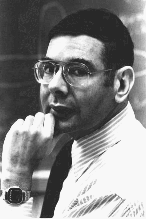 |
ANDREW B. WHINSTON Hugh Roy Cullen Centennial Chair Professor in Information Systems at the Graduate School of Business in the University of Texas at Austin. He is also Professor in the departments of Economics and Computer Science. He is founding Editor-in-Chief of the Decision Support Systems journal. Whinston received his Ph.D. in Management from Carnegie Mellon University in 1962. He has authored seminal books in various disciplines. He has also published over 250 papers in leading academic journals in Economics, Business and Computer Science. Most of Dr. Whinston's research has been based at the Center for Research in Electronic Commerce. |